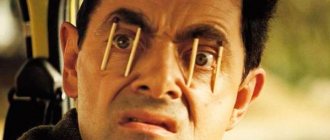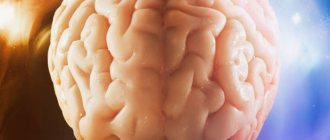Adequate sleep is a need for the body and a guarantee of health. A good night's rest is necessary to maintain performance, good psycho-emotional state, and restore immunity. Uncontrolled excessive fear of sleep has a negative impact on lifestyle, mental and physical abilities. Constant irrational anxiety, fear of dying in a dream, unaccountable panic provoked by an imaginary danger is called hypnophobia. Other names for anxiety-phobic disorder are somniphobia or clinophobia. Patients realize the groundlessness of the fear of falling asleep, perceive reality critically, but cannot cope with the situation.
An obsessive state occurs at any age and provokes serious complications and health problems. The disorder is considered dangerous and painful, leading to exhaustion and depression. Without the opportunity to get a good night's sleep, a person's attention, memory, appearance deteriorate, and labor productivity decreases.
Causes of hypnophobia
- Constant nightmares are the main factor provoking the development of hypnophobia. When working with fear caused by difficult dreams, the most difficult task is to establish the true cause of the frightening dreams. According to experts, nightmares may be associated with unresolved internal conflicts or feelings of guilt. Anxiety that arises in the evening or at night can also affect the nature of dreams.
- Fear of dying in your sleep. People suffering from cardiovascular diseases and those who snore heavily are afraid of not waking up in the morning. Sudden cardiac arrest at night is not uncommon, and snoring can be a symptom of such a serious disease as obstructive sleep apnea syndrome (breathing arrest). With this disease, as a result of relaxation of the pharyngeal muscles and collapse of the respiratory tract, the breathing process of a sleeping person temporarily stops (for at least 10 seconds). The impetus for the development of a phobia is the unexpected death of a loved one in a dream.
- Fear of losing control over what is happening around and awareness of one’s vulnerability. The anxiety may be based on something called genetic memory. At all times, a sleeping person has been an easy prey for predators and enemies.
- A misfortune that occurred during sleep. Perhaps one day a hypnophobe woke up in an apartment engulfed in flames, or at night the home was destroyed by a natural disaster, and a person’s life was in danger.
- Living in a region where a man-made disaster or destructive natural phenomenon is possible, as well as in a zone of military conflict. For example, after the explosion at the Chernobyl nuclear power plant and the urgent evacuation from radiation-contaminated lands, the number of complaints about sleep problems and fear of falling asleep increased. The impetus for the development of the disorder was the shock caused by the tragedy. In the event of a military conflict, a person is afraid of falling asleep and dying from a shell hitting his home or when a building collapses.
- The desire to spend time on more important things or on another type of recreation.
- Close contact with a person suffering from hypnophobia. The phenomenon in which the fear of falling asleep occurs is called induced delusional disorder. With prolonged communication with an authoritative close relative or friend, a healthy person begins to develop the same delusional beliefs as the “carrier” of the phobia.
- Prolonged depression and excessive impressionability.
- A pathological connection between sleep and fear formed in the subconscious. Such a connection may arise due to frequent family quarrels, which greatly frightened the child and prevented him from falling asleep.
- Children's enuresis. If, after involuntary urination at night, the baby is severely scolded, punished or ridiculed, over time a persistent fear of falling asleep develops.
- Horror films, scary books, scary bedtime stories.
- Fear may be based on another phobic disorder - taphophobia, that is, the fear of falling into a lethargic sleep and being buried alive. However, with the current development of medicine, it is almost impossible to confuse lethargic sleep and death.
All about nightmares
Most often, children suffer from nightmares. Waking up in tears with a feeling of chilling fear, they experience extreme stress. Psychologists recommend not to panic, since they consider these conditions to be a natural mechanism of child development at a certain age. But adults often wake up from creepy and realistic pictures. Experts advise: to understand how to get rid of nightmares at night, you need to know the peculiarities of their nature.
Bad dreams most often occur in the rapid phase and visit a person in the pre-dawn time. The disturbing, frightening events that fill the dream are sometimes so realistic that he feels himself a participant in them. Dreams characteristic of the deep stage are formed in the first hours after falling asleep. They do not have a specific plot, but are filled with horror so much that the sleeper may suddenly wake up with an unconscious feeling of intense anxiety.
Causes of bad dreams
Why do nightmares occur, and in what area should we look for the answer to this question - in medicine or psychology? Experts identify a number of provoking factors:
- mental illness and nervous system disorders;
- post-traumatic stress conditions;
- unpleasant memories from the distant past;
- prolonged stress, excessive anxiety;
- use of psychoactive substances – drugs, alcohol, energy drinks, medications;
- depressed state, frequent depression;
- excess emotions;
- lack of proper rest.
Often bad dreams are formed due to overeating, dehydration, oxygen starvation of tissue cells, and hormonal imbalance. People with physical injuries, such as damage to the brain and central nervous system, can also experience nightmares in their sleep.
Changes in a person's state during bad dreams
In the first one and a half to two hours after falling asleep, the human body is still in a state of stress, and therefore cannot adequately respond to emerging fears associated with heartbreaking sleep images. He has a natural reaction - he screams, cries, suddenly jumps out of bed. At this time, the level of adrenaline in the body increases, the heartbeat quickens, and trembling appears. Having fully awakened, a person begins to realize that all this is just a mirage, calms down and falls asleep again.
If a bad dream occurs in the morning, the psyche of the sleeper reacts more adequately. Therefore, the above symptoms do not occur. But such thrillers are remembered quite well, and a person is under their impression all day long. Exciting the imagination, they continue to affect his condition over the next day, provoking psychological discomfort.
It is important to know! As a result, night terror causes sleep disturbances, impairing sleep quality, as a person is afraid to fall asleep. At the same time, the mood deteriorates, irritability and anxiety appear, and physical fatigue accumulates.
People prone to nightmares
Almost 70% of the population suffers from nightmares, and most people note the episodic nature of their occurrence. Chronic pathology is observed only in 3-5% of people. They see horrors during their holidays at least once or twice a week at regular intervals throughout the year. Bad dreams can torment every second child or teenager, which is due to the development and formation of the body. Bad disturbing visions are common among women during pregnancy. Their appearance is based on purely psychological reasons.
Different ways to interpret terrible dreams
Nightmares and dreams have no effect on reality at all. If a person gets into a terrible accident, or is late for work, then it is not a fact that this event will manifest itself in life. But everyone interprets bad dreams in their own way, giving them special meaning.
Prophetic nightmares
Night fears in adults are often unfounded. But experts involved in the analysis and interpretation of dreams claim that every mosquito you dream about at night has a certain meaning.
- A natural disaster in nature indicates the helplessness of a person in real life.
- Chronic delays for a train or plane, accompanied by accidents on the way to the station, indicate the need to take a break from work, relieve yourself of the burden of responsibilities and go on vacation, even if it’s short-term.
- Finding yourself in a terribly awkward situation, embarrassment indicates that a person has too low self-esteem.
- Murders also have different interpretations, depending on the role of the sleeper. If they liquidate him, then in reality he simply fell under the influence of a person or circumstances. When a desire arises to eliminate someone, one should talk about the desire to get rid of someone’s influence.
- A funeral and a dead person are dreamed of when the sleeper tries to explain his problems with the help of esotericism, the evil eye, and damage. Another interpretation can be called the inability to come to terms with the recent death of a loved one.
Children's night terrors
The causes of nightmares in children are of a slightly different nature than in adults.
A teenager or child often worries if the following facts occur:
- quarrels between parents, accompanied by strong expressions of emotions;
- lack of attention from loved ones;
- excessive care and guardianship;
- conflicting demands from parents;
- increased anxiety, nervous state of the mother.
Attention! Frequently recurring bad dreams can traumatize a child’s psyche, but if the episodes are associated with sleepwalking, the consequences can be bruises, abrasions, and injuries.
Parents should try to make the life of their son or daughter calmer. To do this you need the following:
- spend more time with children;
- establish a daily routine;
- increase time spent in the fresh air;
- create an evening bedtime ritual.
What are adults afraid of?
Nightmares that periodically recur in a dream often indicate the presence of some kind of problem in real life. Most often, adults dream about:
- falling from a great height;
- flight and inability to hide from pursuers or danger;
- suffering from illness, death of loved ones;
- natural disasters, troubles and problems experienced in real life;
- paranormal entities.
Experiencing fear, and subsequently obsessive discomfort, many men and women constantly replay stories in their minds, trying to decipher them and project them onto behavior and events in real life.
Manifestation of hypnophobia
As bedtime approaches, a person suffering from hypnophobia begins to experience increased anxiety. In order to be able to sleep, people exhaust themselves with excessive physical activity or use sedatives and sleeping pills.
In cases of severe phobic disorder, the patient tries to avoid sleep by any means. A person can remain without proper rest for several days. A striking example of the manifestation of hypnophobia is demonstrated in the film “Nightmares on Elm Street” . The fear of falling asleep and becoming a victim of a mystical killer who comes in dreams brought the main characters to physical exhaustion.
Strong emotional stress can overwhelm a person when talking about a dream and when thinking about it.
Sometimes you can notice that every time before a night's rest, a hypnophobe performs some rituals. Systematic implementation of certain actions helps reduce the level of emotional stress.
Mechanism of occurrence
Scientists do not give a clear answer regarding the development of a phobia. An obsessive state can be triggered by nightmares, catastrophic events, and mental illness. It is believed that pathological fear of sleep arose in the process of evolution and is inherent at the genetic level. In ancient times, the risk of attack by animals or hostile tribes increased at night. Night vigils contributed to survival. The fear of falling asleep was vital.
An increased risk of developing a phobia is observed in people who have experienced unpleasant moments in their dreams and are prone to anxiety. When afraid, certain neurons in the cerebral cortex are activated. Normally, after some time the brain returns to a calm state. But it happens that the excitement does not fade away. Due to stress, new neural fibers are formed that include a peptide that increases fear. Even thoughts about sleep excite neural circuits. The fear of sleep seems to get stuck in the brain and, against the will, is activated under the influence of external factors.
Physiological symptoms
Physiological symptoms are divided into primary and secondary. Primary are signs of the phobia itself, and secondary are its consequence and are caused by chronic lack of sleep.
Primary symptoms of hypnophobia:
- excessive sweating,
- shiver,
- cardiopalmus,
- rapid breathing or shortness of breath,
- nausea,
- thirst and dry mouth.
Secondary symptoms of hypnophobia:
- drowsiness, weakness, apathy, general malaise,
- problems with information perception, memory and thinking disorders,
- blurred vision and eye pain,
- difficulties with coordination of movements,
- throbbing headache
- cardiovascular diseases and pain in the heart area,
- excessive emotionality, tearfulness, increasing sensitivity.
How to get rid of an obsessive phobia
A person always stumbles when he is trying hard not to stumble, and does not sleep when he is trying hard to fall asleep. There is a special technique, independent psychotherapy, developed by the scientist psychologist V. Frankl. Let's learn how to use it!
After several terrible nights, the fear of insomnia has settled in you. You've read about its consequences. And then you yourself, with your expectation and attitude, caused this fear to come out again and again every evening.
As soon as your eyelashes close and your thoughts become confused, this fear sets off an alarm clock and the thought: “Am I really falling asleep!” woke you up completely.
Stop! V. Franklin's technique is that you need to do everything the other way around. Give yourself a “Don’t sleep!” attitude before going to bed. Lie down, close your eyes and chase different thoughts, periodically convincing yourself not to fall asleep. Even counting sheep is necessary in order to stay awake. As a rule, sleep comes at 15-20 sheep.
The combination of this psychotherapy with reading boring literature helps a lot. You will not have to control your thoughts, because they will be occupied with information that does not concern you at all.
In such cases, it is good to use an e-reader with a backlit screen. After a second of your inactivity, it will turn off itself, and you will not have to reach for a table lamp or sconce.
And don't forget about biorhythm! Lie down only during the decline phase.
Consequences of hypnophobia
Hypnophobia negatively affects a person’s physical and mental health, so it must be treated, and treatment must be timely. The more severe a phobic disorder develops, the more damage it causes to all systems of the human body .
With a chronic lack of sleep, the immune system is weakened, the information received during wakefulness is not properly processed and absorbed, the removal of toxic waste products from the brain is slowed down, the hormone melatonin is not produced, and there is no quality rest.
A person suffering from hypnophobia becomes exhausted both mentally and physically. Due to a general deterioration in health, panic attacks may become more frequent.
Related measures
According to experts in the field of psychiatry, yoga and meditation have a beneficial effect on both the physical condition of the body and mental health.
Also, many psychologists recommend: if you are afraid to fall asleep and have anxious thoughts about this, find yourself an interesting hobby. Thanks to doing what you love, thoughts related to your hobby will gradually begin to dominate in your head, which will crowd out unwanted thoughts full of fear before going to sleep.
The atmosphere in the house should be calm and relaxed. Never make fun of someone suffering from a phobia. Since the process of getting rid of a phobia is long, maximum understanding and support will be required from the family.
If a person is lonely, then the appearance of a pet will help create a positive psychological environment in the house.
Evening walks and exercise speed up falling asleep and reduce the risk of nightmares, which often cause fear and fear of falling asleep.
Treatment of hypnophobia
When working with hypnophobia, it is very important to establish the true cause of fear. Otherwise, the patient may be prescribed the wrong treatment. For example, in the case of induced delusional disorder, in order to completely cure the “infected” person, it is enough to simply stop his contact with the “carrier” of the actual phobic disorder.
Other methods of working will not be effective. Induced delusional disorder is a very rare phenomenon, so specialists may miss the true cause of fear.
Hypnophobia can also be a symptom of thanatophobia or taphophobia. In this case, you need to work not with the fear of falling asleep, but with the underlying phobic disorder.
Therapeutic treatment
If the cause of the phobia is childhood fears, then group role-playing games and psychoanalysis have a good effect.
For a disorder caused by a traumatic experience in a person’s recent past, rational and cognitive behavioral therapy and an existential approach are used. The following are also used in the treatment process:
- neuromuscular relaxation methods,
- ideomotor therapy,
- sensory reproduction,
- autogenic training.
Yoga, meditation and aromatherapy can also help reduce anxiety.
How to treat fear of the dark
As we have already said, achluophobia is an irrational fear. Every person has at one time or another been afraid of being in the dark. But usually this is caused by a specific reason, and after it is eliminated, the fear of being in the dark goes away. When fear invariably returns again and again without any apparent reason, we can talk about its irrationality. A person suffering from achluophobia simply runs away from his fears, and that is why they remain and continue to haunt him. Agree - if you are afraid, but do not even try to change anything in the current situation, but simply begin to avoid what causes emotional stress, then the fear will never go away.
There are various treatments for the most persistent and severe forms of this phobia. One of them is exposure therapy, when the patient, under the supervision of specialists, is again and again immersed in a situation that causes him fear, until he is convinced that there is nothing threatening to his life in it. If the patient is too frightened to receive direct contact with the frightening situation, then systematic desensitization can be used, a method of therapy that can help treat anxiety and phobias without directly involving the source of fear.
With systematic desensitization, the situation you are afraid of must be taken to a slightly different level. For example, if the patient is afraid to stay in a dark room, then he is offered to be in the dark not alone, but with someone. Then he remains alone in the same room, while the second person is in the next room, while the door remains open. Then the patient is left completely alone in a dark room with the door open, then with the door closed, and so on.
Once you have divided your fears into several levels, you should try to experience each of them while controlling your emotions. If you manage to pass a certain level feeling relaxed, then you should move on to the next one; and so on until you manage to go through them all.
Finally, cognitive behavioral therapy can help you overcome your fear of the dark. Agree, every fear is anticipated by the thought “I’m afraid of this!” And since our emotions are caused by thoughts and are in some sense our beliefs, it is changing certain beliefs that can prevent the unwanted emotions that they cause. This also applies to the fear of the dark. After changing your ideas about the dark, you will no longer be afraid to stay in unlit places.
Drug treatment
In the case of a severe disorder, in which a person has a prolonged lack of sleep and serious physical exhaustion, sleeping pills and the hormone melatonin are prescribed. This allows the patient to get at least a little sleep and regain his strength.
Symptomatic drug treatment can be prescribed for disturbances in the functioning of organs or body systems. However, the main work should be aimed at ridding the patient of irrational fear , and not at treating secondary symptoms of phobia.
Why is an irrational fear of sleep dangerous?
The patient is in a constant stressful situation, which can result in depression and suicide. Many adults try to find a way out by taking alcohol, sedatives, and sleeping pills. Others, in order not to fall asleep, increase the lighting in the room and drink invigorating drinks.
In case of inadequate sleep:
- the risk of diabetes and cancer increases;
- biological rhythms are disrupted;
- the immune system weakens;
- memory is impaired;
- The production of melatonin decreases, which causes aging and impairs the process of falling asleep.
Long-term hypnophobia becomes the cause of neuroses. Children have a higher risk of developing neurotic disorders. They affect the vascular and autonomic systems and provoke negative personality changes.
People with obsessive anxiety about sleep need professional help. The sooner the cause of traumatic moments is determined, the fewer health complications will arise.
Ambient atmosphere
When working with hypnophobia, it is important what attitude towards the patient is shown by his relatives. If an anxious person feels more confident in the presence of loved ones, then one of the relatives should stay close to the hypnophobe during his sleep.
Criticism and ridicule can aggravate the emotional stress of the patient. Having a pet can help reduce anxiety. A favorite activity or hobby helps to partially repress negative thoughts.
Where does the fear of not sleeping come from?
It all comes from the same place, from lack of knowledge. Either a person who knows everything about sleep, or one who knows nothing at all about any fears, goes to bed fearlessly.
Most of the population, having read the two previous sections of horror stories, crawling under the covers in the evening and remembering that insomnia threatens many troubles, will involuntarily think about falling asleep. This is already the first step towards a phobia.
The wise D. Carnegie warned that worrying about insomnia is more harmful than insomnia itself. Yes, despite possible depression, early aging, hormonal imbalances, no one has ever died from insomnia itself.
But try not to think about the green monkey after you were told not to think about it?! This vicious circle, the fear of fear, easily becomes a phobia, a disease, especially after several nights spent without sleep. The person is panicking!
How to improve your sleep quality?
- The sleeping place should be comfortable.
- Before going to bed, you need to ventilate the room well.
- Your daily diet should include more fruits and foods containing zinc, copper, calcium, iron and magnesium. Additionally, you can take vitamins.
- It is necessary to give up alcohol and quit smoking.
- Sports and evening walks will help reduce the likelihood of painful dreams.
- You should avoid books, films and games with scary content.
How to learn to sleep
Find your biorhythm. Calculate it by listening to your feelings for several days in a row. Find your low points and try to overlap one of them with your bedtime. Why are you worse than Tibetan monks?!
Let's return to the list of causes of insomnia and also try to remove them from our lives according to the list in order to highlight one, the most dangerous:
- The lack of a routine can easily be corrected by introducing it into your life. Even if for a number of reasons you cannot go to bed before midnight, make sure that your body assumes a horizontal position at exactly the same time. Accordingly, don’t let yourself lie too long in the morning.
- 2 hours before bedtime, avoid heavy physical labor.
- Dinner should be light, low-fat and no later than 3 hours before bedtime.
- Eliminate stimulating drinks from your evening diet.
- Don't get upset before bed. Don't watch thrillers and action films, don't read very interesting books. Yes, yes, it is boring literature that makes your eyelashes droop, and reading material falls from your weakened hands within 10 minutes.
- If you allow yourself to take a nap for an hour during the day due to lack of sleep at night, try to wait until the evening.
- Add here a walk in the fresh air, a warm (Not hot! And not a cold shower!) bath and a glass of warm milk with a teaspoon of honey or herbal soothing tea.
Now let's talk about how to overcome the fear of insomnia and what to do about it.
Torture by sleep deprivation (sleep deprivation)
The negative consequences of lack of sleep have been known for a long time. Sleep deprivation was used as torture both many centuries ago (for example, in Ancient China) and in the recent past. In 1936-1938, NKVD officers exhausted prisoners with interrogations that lasted several days without a break for sleep.
Similar methods of torture were used on American pilots captured during the Vietnam War. People were forced to sit on a chair in the same position for several days, without giving the prisoners the opportunity to sleep.
In the 2000s, in the American Guantanamo Bay camp, prisoners were harassed by bright spotlights and loud, continuous music that did not allow them to rest or sleep.
However, sleep deprivation can also be used to benefit a person. In 1966, German psychiatrist Walter Schulte began using sleep deprivation techniques to treat various types of depression . Until now, sleep deprivation is considered the most effective method of treating depressive conditions.
Cost of services
| TREATMENT OF DEPRESSION, NEUROSIS | |
| NAME OF SERVICE | price, rub. |
| Consultation with a therapist (observation) | 3,000 rubles |
| Consultation with a neurologist (observation) | 3,000 rubles |
| Consultation with a psychologist | 2,000 rubles |
| Psychiatrist consultation | 5,000 rubles |
| Consultation with the head of the department | 4,500 rubles |
| CONSULTATIONS, INITIAL INSPECTION | |
| NAME OF SERVICE | price, rub. |
| Telephone consultation | For free! |
| Telephone consultation for relatives | For free! |
| Initial consultation with a psychiatrist-narcologist in a hospital | For free! |
| Initial consultation with a psychologist by phone | For free! |
| Visit of a narcologist and consultation at home | 1,500 rubles |
| Consultation with a psychotherapist, psychologist in the clinic | 2,000 rubles |
| Initial appointment, examination by a doctor, cubital catheter, ECG | 2,500 rubles |
| Consultation with a therapist, neurologist, surgeon | 3,000 rubles |
| Family consultation with a psychologist | 3,000 rubles |
| Psychiatrist consultation | 4,000 rubles |
| Consultation with the head of the department | 4,500 rubles |
| PROMOTIONS AND DISCOUNTS | |
| When applying again | 5% discount on treatment |
| Disabled people and war veterans | 5% discount on treatment |
| Large families | 10% discount on treatment |
* Dear patients! The administration tries to promptly update the price list posted on the website, but in order to avoid possible misunderstandings, we ask you to clarify the cost of services on the day of your call by calling 24/7.
The posted price list is not an offer.










